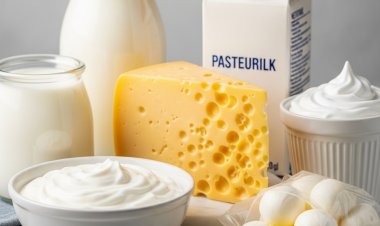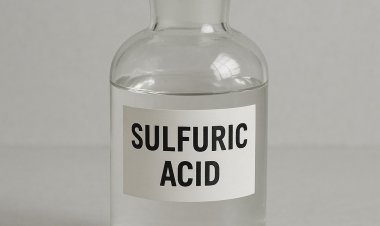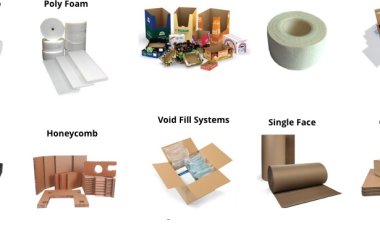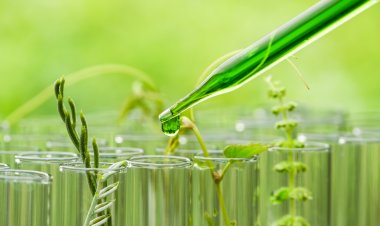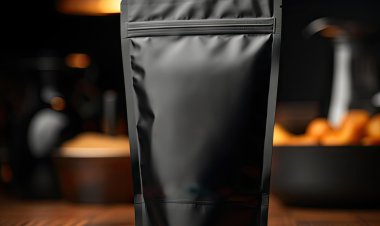Global Botanicals Market Size to Reach $178.3 Billion at a CAGR of 6.8% by 2030
Vantage Market Research expects the market to reach USD 178.3 Billion by 2030, exhibiting a growth rate (CAGR) of 6.8% during 2023-2030.
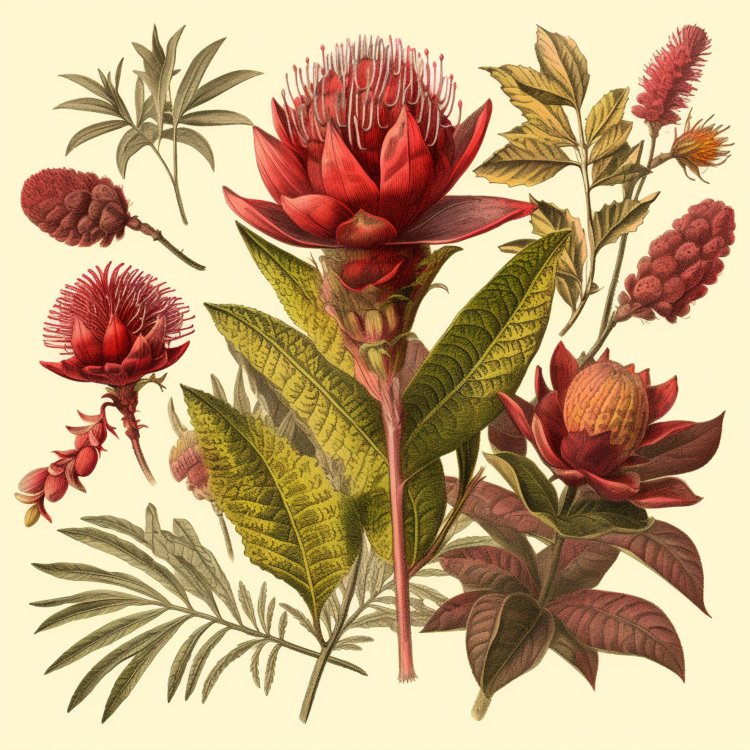
The Global Botanicals Market size reached USD 105.2 Billion in 2022. Vantage Market Research expects the market to reach USD 178.3 Billion by 2030, exhibiting a growth rate (CAGR) of 6.8% during 2023-2030.
Table of Contents
|
Introduction: |
|
|
Botanicals in Traditional and Modern Medicine: |
|
|
|
Botanicals in the Beverage Sector: |
|
|
|
Botanicals Keep Growing in Food Product Development: |
|
|
|
|
Botanicals in Drug Development: |
|
|
|
Company Engagement in the Botanicals Market: |
|
|
European Landscape of Botanical Products: |
|
|
|
Conclusion: |
|
Introduction
Botanicals, derived from various plant parts, have been integral to traditional medicine for centuries. The leaves, flowers, seeds, bark, roots, and twigs of plants contain compounds with curative properties that can alleviate ailments and enhance overall well-being. Whether harvested in the wild or cultivated in gardens and farms, Botanicals have evolved from traditional medicinal use to a dynamic market influencing food, beverages, drugs, and cosmetics.
Request Sample Report of Botanicals Market @ https://www.vantagemarketresearch.com/botanicals-market-2374/request-sample
Top Companies in Global Botanicals Market
- Archer-Daniels-Midland Company (U.S.)
- Firmenich SA (Switzerland)
- Martin Bauer Group (Germany)
- Givaudan S.A. (Switzerland)
- Synergy Flavors Inc. (U.S.)
- Blue Sky Botanics Ltd. (UK)
- International Flavors & Fragrances Inc. (U.S.)
- Ransom Naturals Ltd. (UK)
- Bell Flavors & Fragrances (U.S.)
- Blossom Botanicals (U.S.)
- GreenLife Pharmaceuticals (Nigeria)
- Herb Essentials (U.S.)
- Lipoid Kosmetik (U.S.)
Botanicals in Traditional and Modern Medicine
The Three Common Forms of Botanicals
- Botanical Preparations: Various forms of botanical medicines are prepared from plant parts.
- Botanical Drugs: Medicinal compounds derived from plants used for therapeutic purposes.
- Essential Oils: Extracts from plants, capturing their distinct aromas and flavors.
Botanicals Use in Health Maintenance and Disease Prevention
- Immune-Active Botanicals: Echinacea and other Botanicals enhance and strengthen the immune system. These plants contain certain compounds that can support the body's natural defense mechanisms, helping prevent diseases and maintain overall health.
- Antioxidant Botanicals: Green tea, among other Botanicals, possesses potent antioxidant properties. Antioxidants help to improve cardiovascular health, and shield the body from damaging free radicals that can lead to cancer.
- Psychological Symptom Alleviation: St. John's wort, a well-known botanical, has been used traditionally to address psychological symptoms such as insomnia, anxiety, and mild depression. Its active compounds interact with certain neurotransmitters in the brain, potentially improving mood and reducing these symptoms.
- Gastrointestinal Solutions: Ginger is a commonly used botanical for various gastrointestinal problems. It has properties that can help alleviate nausea, relieve indigestion, and even aid with constipation. Ginger's natural compounds soothe the digestive system and promote overall gastrointestinal wellness.
- Reproductive System Support: Botanicals like black cohosh and saw palmetto have been used to support the reproductive system. Black cohosh is a popular remedy among women going through menopause to reduce symptoms, including mood swings and hot flashes. These Botanicals have natural properties that may relieve and help specific reproductive issues.
Botanicals in the Beverage Sector
The demand for functional products in the beverage sector has increased, with a particular focus on botanical ingredients. This shift in consumer expectations, driven by millennials, has led to a surge in the popularity of "0% alcohol" offerings. Consumers now seek Botanicals like CBD, adaptogens, and green tea to recreate flavourful experiences. CBD, known for its potential health benefits and calming effects, is being incorporated into beverages to offer a non-alcoholic way to relax and unwind. Natural compounds called adaptogens, which help the body manage stress, are also becoming more and more popular in enhanced water and functional teas, giving customers a pick-me-up or promoting relaxation. Green tea, recognized for its health benefits and antioxidant properties, is often used as a base in functional teas and fruit water-tea blends. Research indicates a growing interest in botanical-infused beverages, offering a combination of flavors, functionality, and health benefits beyond just quenching thirst. The beverage sector embraces botanical ingredients to cater to the rising demand for healthier, alcohol-free alternatives that still provide great taste and experience.
Botanicals Keep Growing in Food Product Development
- Herbal supplement sales surpassed $8 billion in 2017, doubling since 2000.
- Turmeric is a botanical ingredient popular in most of the South Asian dishes.
- Adaptogens, such as ashwagandha, reishi mushrooms, and holy basil, gain traction.
- Elderberry, wheatgrass, and barley grass re-enter the mainstream with increased sales.
- Global exploration for new Botanicals: Kakadu plums from Australia and New Zealand offer unique flavors and nutritional benefits.
Botanicals in Drug Development
The pharmaceutical industry's foundation has long been natural products like aspirin from willow bark. However, a new class of drugs is emerging – botanical extracts. Botanical drugs, sourced from entire plants or extracts, present a unique challenge in toxicity testing. Traditional medicines, often botanical extracts, are being re-evaluated with clinical studies to meet modern standards. FDA-approved botanical drugs like Veregen® and Fulyzaq® exemplify this shift.
Buy Now Our Botanicals Industry Report @ https://www.vantagemarketresearch.com/buy-now/botanicals-market-2374/0
Company Engagement in the Botanicals Market
- Lipoid Kosmetik has developed a new ingredient called Amaretine® that is specifically designed to treat sensitive skin. It is unique because it combines bitter and sweet elements in a liposomal carrier system. The bitter element helps regenerate the skin barrier, while the precious element reduces inflammation. This ingredient improves the overall quality and sensitivity of the skin.
- Bell Flavors & Fragrances is focused on identifying and capitalizing on consumer trends in the essential oils and botanical extracts industry. They recognize the growing trend of using natural remedies like essential oils and are exploring integrating functional ingredients and adaptogens into various products.
- Indena and DSM-Firmenich have partnered to develop science-backed botanical solutions for dietary supplements. Combining their scientific expertise, they aim to create innovative product formulations supported by rigorous research and clinical validation.
- Novella, Ltd. is a Nutri-tech start-up revolutionizing botanical ingredient cultivation focusing on climate resilience. They use proprietary technology to overcome challenges associated with traditional plant growth, ensuring consistent nutrient production and stability.
- Leaven Essentials specializes in manufacturing herbal extracts and fine chemicals for various industries. They prioritize research and development, using technologies like DNA fingerprinting and geo-tagging to ensure the authenticity of their products and sustainable herb collection practices.
European Landscape of Botanical Products
EU implements regulations like the Traditional Herbal Medicinal Product Directive (THMPD). There are two subcategories for herbal medicinal products: well-established use and traditional herbal medicinal products (THMPs). Community list streamlines registration of THMPs containing specific herbal substances. European Food Supplements Directive regulates concentrated nutrient sources. Health claims for botanical products face challenges in authorization by the European Food Safety Authority. Clinical studies are essential for both medicinal and food supplement botanical products. Preclinical toxicological studies ensure safety. Herb-drug interactions are monitored for select Botanicals.
Conclusion
The Botanicals market is transforming, with traditional remedies finding new applications in food, beverages, drugs, and cosmetics. As consumer preferences evolve, companies innovate to meet demands while ensuring safety and efficacy. The regulatory landscape, particularly in Europe, reflects the need for rigorous testing and evaluation. The convergence of tradition and modern science positions Botanicals as a dynamic force in promoting health and well-being across diverse industries.
Read Our Latest Press Release: Carbon Fiber Market - In-depth Analysis
Contact us
Eric Kunz
6218 Georgia Avenue NW Ste 1 - 564
Washington DC 20011-5125
United States Tel: +1 202 380 9727
Email: [email protected]
Website: Vantage Market Research










